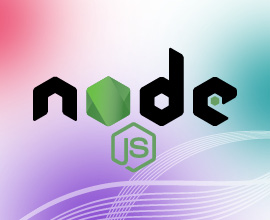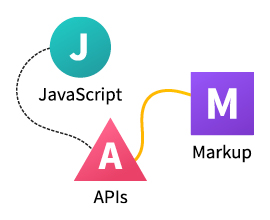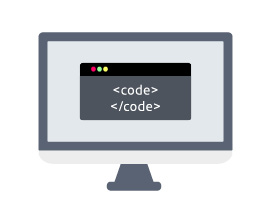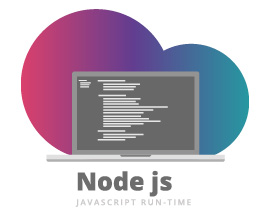Feb
22,
2022
Progressive Web Apps are touted everywhere as the only true solution and the app of the future. Some decision-makers and developers are tempted to dismiss native apps outright as a dusty bridging technology. But whether it is advisable for a company to switch from native apps entirely to PWAs depends...
Feb
1,
2022
From Bundlers and the complexity of JavaScript projects
JavaScript projects are complex, with many homegrown problems. This article explores some of these problems and their causes. We will discuss how you can find a way out of the complexity trap can be found with the help of modern tools and standards, such as Snowpack and ESM.
Jan
12,
2022
DevOps for JavaScript Developers
As a web developer, how can I use DevOps for myself? Where does DevOps begin and what does it involve? How do I design my daily routine to achieve the maximum benefit for software development and the warranty of application operation? This article shows how easily we can use React...
Oct
12,
2021
A backend programmed in Node.js and executed with Docker is not much use on its own if it cannot be accessed for lack of a client. However, it does not have to have a graphical user interface. A command line tool will do - and is practical in many cases....
Sep
28,
2021
Anyone developing an application in Node.js not only has to deal with the code itself. It also involves connecting infrastructure, including databases, and the execution layer with Docker. How does that work?
Aug
10,
2021
The case for asynchrony in JavaScript is clear: Callbacks are evil and Promises are the only correct solution. No, actually async/await is the solution, but this relies on Promises, which involve some callbacks. So not everything is as clear as it seems. In the following, we will clarify why asynchronicity...
Jul
28,
2021
When developing with Node.js, it is not only important to write the actual code, but also to ensure quality. In addition to conscientious code structuring, this also includes applying code guidelines and executing automated tests.
Jun
1,
2021
Especially for content-heavy sites and applications where scaling and security play a major role, the JAMstack offers an approach that can make development easier and cheaper.
May
17,
2021
One of the most common uses of Node.js is the development of web APIs. Numerous modules from the community are available for this, covering a whole range of aspects, such as routing, validation, and CORS.
May
11,
2021
If you develop modern web and cloud applications it’s just a matter of time until you encounter the JavaScript runtime environment Node.js. What is Node.js, how do you install and configure it, and how do you develop with it?
Sign up for the iJS newsletter and stay tuned to the latest JavaScript news!
Explore other Tracks
Angular Development
Master Angular Development for Scalable Web Applications.
JavaScript Testing & Security
Enhancing Security and Code Quality in JavaScript.
Node.js & Backend
Node.js for Scalable Backend Solutions.
React.js & Next.js Development
Master React & Next.js for Dynamic Web Apps.
DevOps CI/CD
Streamline JavaScript development with DevOps practices.
Web Architecture & Performance
Master Web Architecture and Performance Optimization in JavaScript.
Generative AI in JavaScript
Push Your JavaScript Apps to the Next Level with GenAI and Cutting-Edge Web Innovation.
DON'T MISS ANY NEWS
Become part of our JavaScript community now & write better code!
DON'T MISS ANY NEWS
Become part of our JavaScript community now & write better code!
Unlock Exclusive Discounts & Free Recordings Today

Register for a free devmio Fullstack membership to secure:
 6 months access to session recordings.
6 months access to session recordings.
 $100 discounts on iJS New York tickets.
$100 discounts on iJS New York tickets.
 1 year unlimited access to devmio - the conference platform.
1 year unlimited access to devmio - the conference platform.
Sign Up today and get a taste of iJS New York! Free for a limited time.
DON'T MISS ANY NEWS
Become part of our JavaScript community now & write better code!
DON'T MISS ANY NEWS
Become part of our JavaScript community now & write better code!
DON'T MISS ANY NEWS
Become part of our JavaScript community now & write better code!









